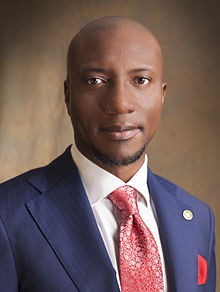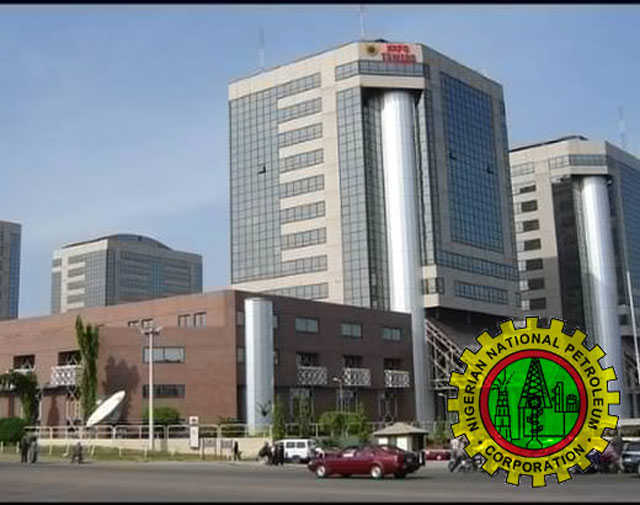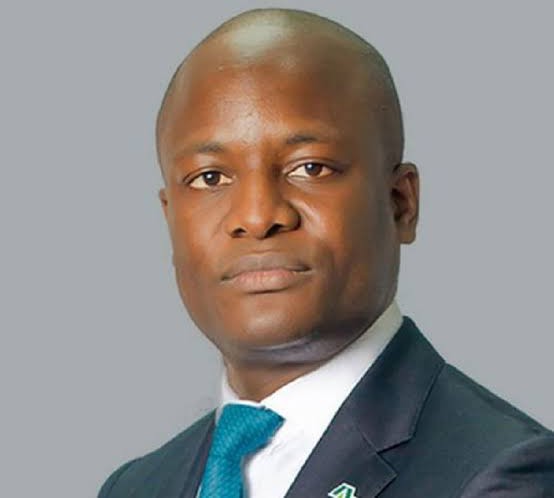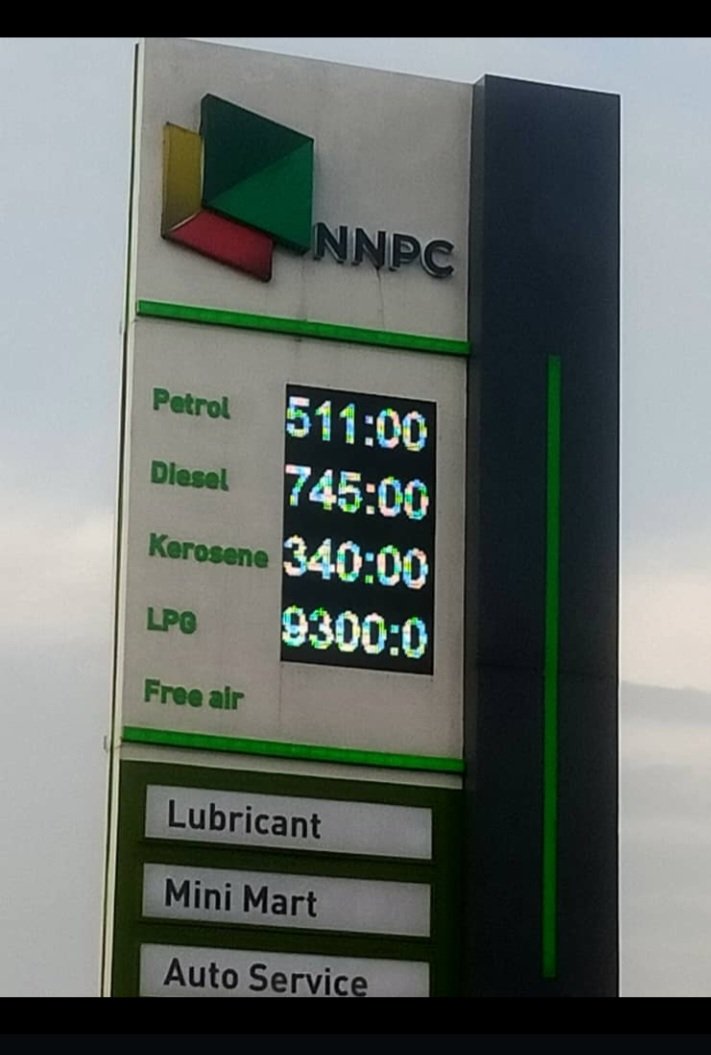Business
Oscar Onyema: A stock warrior’s endless headache

By OKEY ONYENWEAKU
To say that the Nigerian economy and its global counterparts are all mired in the heady winds of the COVID-19 crisis would be an almost irrefutable statement of fact. What may however have not been fully stated this far is how much effort and trouble that is being deployed into ensuring that, at least in the Nigerian instance, the market continues to deliver good returns and accompanying hopeful packages to investors and participating firms of all grades, ranges and categories.
And this is indeed to be expected given that capital markets the world over have remained about the strongest capital formation base for businesses, firms and conglomerates desirous of making a buck and more from their investments. Notably, the Nigerian capital market whose platform started as a department in the Central Bank of Nigeria has not only served that purpose but also given tons of lifelines to many an investor.
In the least estimation of analysts, not a few trillions of naira has been harvested by businesses and investors from the Nigerian Stock Exchange (NSE) in some six decades of its existence. This gargantuan achievement which has benefited the country, private persons and public firms has involved among others, the efforts of visionary leaders of the bourse who have continued to strategize and work around ways of strengthening the national economy, even in the current dispensation.
From Rev. Hayford Alile, an illustrious boardroom guru to Professor Ndi Okereke-Onyiuke, a literal market demi-god of sorts, and now Mr. Oscar Onyema, the focus has been to build a strong capital market of international standard that would be a beehive for investors, irrespective of where they are located or coming from in the world.
However, whereas the capital market seems to be losing vigour in line with extant developments in the national and international stage, it still serves as one of the best investment options today and in the future despite Covid-19.
With the All Share Index registering at 24, 097.48 points as at July 7, 2020 and a market capitalization of N12.570 trillion, Nigeria’s capital market is still one of the most attractive in Africa though it ranks at number 4 in the regional tally at the moment.
The above figures may have betrayed some form of weakness for a market which ASI and market capitalization stood at the giddy height of 29,458.21 points and capitalization of N15.173trillion respectively as at January 22, 2020. However, given the ravaging effect of Coronavirus, popularly known as Covid-19, and the crash in the price of crude, the financial markets are challenged all over the world.
Unfortunately, the economies of the African countries are already in bad shape; revenues have dropped by about 35 percent; high debt servicing has become pervasive; many investors have taken flight; equities market capitalization the world over has lost $17 trillion in 52 days; there is collapse of investor confidence; sentiments are fragile; about $40billion have left emerging economies; remittances are drying up while tourism has lost about $200billion.
Despite the assailing effects of such a turbulent market environment, the Group Chief Executive Officer of NSE, Mr. Oscar Onyema has not only remained focused but has also drawn upon his entrenched creative reserves in trying to nudge the local capital market to continue to compete for the highest metrics possible with the best market spheres in the world.
Underestimated initially, because his predecessor had left behind a seemingly very large and clearly quite bogus shoe size at a time when the market was adrift, that was however to be short lived as Oscar Onyema began with far reaching measures to help reposition the market from his first day in office. Some of these ranged from new innovations and the introduction of novel products to deliberate efforts that were aimed at repositioning the market which had closed -17 per cent negative in 2011.
To his credit then, Oscar quickly went to the drawing board, galvanized his team to panel beat the systems and processes and turned around the fortunes of the turbulent market. This yielded results as the market rebounded and gained a whopping +35 per cent at the close of business in 2012.
Ever since then, the NSE boss has not looked back as the new and fresh energy fired like a turbo engine nudged the Exchange’s Income and Expenditure Account from a N358 Million deficit/loss position in 2011 to N2.7 Billion Surplus/profit After Tax in the 2018 financial year. The asset base of The Exchange also witnessed tremendous growth, from N14.9 Billion in 2011 to N29.07 Billion by 2018 – nearly a 100% increase. Significantly too, Oscar Onyema had taken the Market Capitalization of The Exchange from N10.28 Trillion in 2011 to N26 Trillion by the close of business in 2019.
From his ideas bank, Oscar delved into the implementation of a 2018 to 2021 corporate strategy aimed at boosting retail investor participation, which is presently put at seven million, so as to further enhance market liquidity and velocity.
Onyema said that the exchange’s focus in the next four years would be geared toward satisfying customers need, boost domestic retail segment penetration and enhance its demutualised structure.
The chief executive lamented poor retail participation on the exchange, saying the presence of only seven million investors in a country of 180 million on the exchange was not good enough.
There was also excitement in the capital market community the day President Muhammadu Buhari gave assent to the NSE Demutualization Bill after its passage by the National Assembly. Onyema had been steadfast and consistent in pursuing that project which would give the NSE a sustainable future from the very first day he became CEO.
Demutualisation, aside from fundamentally changing the orientation and mandate of an Exchange from a cooperative to a business, would also embrace other changes, both internal and external, in order to transform the organisation into one whose benchmarks are based on financial performance.
The NSE under Onyema, also creatively introduced the NSE Growth Board for fast growing companies, Small and Medium Sized Enterprises and Nigerian startups. Oscar, in his opening remarks at the launch of the NSE Growth Board said, “This Platform is pivotal to our efforts in catering to a segment of the economy that hitherto has been neglected and perceived as a high risk and low reward venture by most service providers especially in relation to access to capital from financial institutions.”
Equally, very unique to the African market was the documenting of the first-ever globally acceptable ranking of Nigeria’s 50 biggest corporations by market capitalization. Tagged The Signature50, the initiative gave a clearer picture of the potentials therein in the Nigerian financial market and its competitive capacity in the world.
Aside from ensuring the advantage of easier access to affordable and cheaper funds(capital) to develop their businesses and service their commercial costs, listing on the Stock Exchange helps boost the image and trust worthiness of firms that go public. It also earns the firms higher credibility, making them more attractive to potential employees and top talents.
Within the country, many firms have in fact, availed themselves of this window of opportunity offered by the Nigerian Stock Exchange. Over the years, many companies both small and big have scrambled to belong to the league of quoted companies on the NSE.
Today the NSE which was established in the 1960s and which commenced trading from premises it had rented from the then burgeoning media conglomerate, Daily Times of Nigeria Plc, accommodates over 161 equities that are listed and have their stock prices boldly displayed on the price charts for members of the trading public to take their pick from, almost on a daily basis.
While many of the firms are seen to have listed willingly, a few others were either coaxed or brought into the capital market fold through some degree of moral, if not regulatory suasion.
Notwithstanding how they come into the market however, both big and small firms engaged in the market have been able to survive till date based on their ability to tap into the opportunities offered by the Nigerian Stock Exchange.
Looking critically at the listed equities in the market, firms as Nestle Nigeria Plc, Nigerian Breweries Plc, FBNHoldings Plc, Union Bank of Nigeria Plc, Guinness Nigeria Plc, Cadbury Nigeria Plc, Unilever Nigeria Plc, UACN Plc and PZ Cussons Plc easily rank among those that have traded for a long time on the NSE. And then between 2004 and 2006, many of the then new generation banks embraced the capital market to raise funds to recapitalize and were subsequently sucked into the thrills and grind of daily trading on their equities in the market. The NSE management under the leadership of Onyema has been extolled for sustaining and ensuring that they are still reaping the benefits of their continued stay on the exchange.
More recently, through Onyema’s persuasion, telecoms firms such as MTN Plc and Airtel Plc removed the toga of being private firms and undressed themselves in the public. Also playing strong in the market is the Cement Industry which has contributed the likes of Dangote Cement, BUA Cement and Lafarge Africa Plc, albeit with relatively heavy capitalization numbers.
Other qualitative listings attracted by his team include Stanbic IBTC Holdings in 2012, FBN Holdings in 2012, Seplat Petroleum in 2014 and Transcorp Hotels in 2015
Despite the ups and downs witnessed by equities over the years, many more investors appear to have good testimonies about the market now than otherwise. On the flip side though, there are of course also those who do not have much favourable comments about their experience in the capital market.
Nevertheless, discerning market analysts have not ceased to wonder why the likes of Globacom, NNPC, NLNG, Shell BP, Promasidor, Orange Drugs, Emzor Pharmaceutical are yet to take the bite and make their grand entry into a space many consider to be their almost natural habitat.
Whereas more companies are expected to list on the exchange to deepen the capacity and range of the market, investors are also not pleased with the fact that a few seemingly well capitalized firms which were members of the Customs Street brotherhood over the years have presently delisted from the market. For context however, of the 113 companies that have delisted from the market, Coca-Cola Bottling Company Plc, 7-UP Bottling Company and A. G Leventis Plc among others delisted from the market voluntarily while others had regulatory issues and left.
Oscar Onyema’s headache
For some of the listing-shy firms, there have been serious concerns over the challenges of trading within the Nigerian Stock Exchange that emanate from the weak macro-economic environment which is heavily exposed to the fluctuations of oil prices. The capital market is not insulated from the occasional bites that come when the price of the nation’s single dominant export commodity, crude oil, takes a beating. Therefore, there is a consensus that if the capital market is the authentic barometer with which to measure the economy, there must be greater efforts at economic diversification to boost other sectors.
Before now also, owners of businesses, entrepreneurs and the World Bank have complained about the drawbacks from the continued lingering of multiple exchange rates. The development has hampered inflows and outflows which affect entrepreneurial efforts.
Investors in the market have also almost always believed that adequate liquidity is lacking in the market. Experts explain that liquidity is the ability to exchange your stocks for cash as quickly as possible and predictably. The implication is that you can sell your shares at a predictable price because there are enough buyers and sellers to stabilise the market.
But with the weak outlook in the market currently, the earlier touted liquidity status of the market may have weakened as well.
The Securities and Exchange Commission (SEC), the apex regulatory authority of the Nigerian Stock Exchange (NSE) is neither a member of the National Economic Council (NEC) nor has any role to play in the economic advisory team of President Buhari. Many have raised their eyebrows in wonder as to why an economy that presumably wants to grow should exclude such a vital body from its core planning and decision-making system.
Some also finger political instability in Nigeria as part of the reasons there is a seeming gradual erosion of confidence in the market which should be a beehive of activity for the not only Africans but the world at large.
Despite these challenges, Managing Director of HighCap Securities, Lambert Adonri reckons that, ”under Onyema’s watch, numerous achievements have been made. People thought he was too young given the caliber of persons who were there before him. But he has proved to be humble, intelligent and resourceful. He has moved the market to unexpected heights and to international standards. Under him the market has grown in leaps and bounds, in addition to maintaining integrity and confidence.”
For the Managing Director/ CEO of Heritage Investment & Securities Limited, Chidi Ajaegbu, the Nigerian Capital market is indeed deep and has what it takes to attract international confidence and investment. He adds that in his view the NSE also has the technological sophistication and international best practices to compete anywhere in the world.
“There is no confidence problem in the market. Some of the international firms not playing in the market today have been here with us even when the economy had not become this weak. Their not listing on the exchange is rather a mindset thing. Some are not ready to dilute the ownership of their company and are not ready also to subject themselves to the post listing requirements”, said Ajaegbu.
Similarly, a Lagos based financial analysts, Olisa Egbunike told Business Hallmark that the Nigerian capital market was deep and possesses facilities that have given it international recognition.
”Our entrepreneurs are afraid of losing ‘the 90 per cent’ of their holdings in Nigeria. Financial literacy is very low among the elites and entrepreneurs who do not know that it is better to own a 10per cent stake in a big and thriving firm than own 90 per cent in a sick and small company”, said Egbunike.
Business Hallmark checks reveal that before now, there had been speculations that loss of confidence, crisis in the Exchange and market meltdown were among the reasons why some companies pulled out, others were threatening to pull out and others are reluctant list on the stock exchange.
MTNN for example has kept its IPO in abeyance saying the conditions that caused its reluctance were still there, implying that investors may have to wait longer for its public offering.
The challenge however at that point though would be that when the day of its IPO listing comes, it is those who had already cut their teeth in the market that would be the prime candidates to reap the concomitant gains that follow. Such indeed is the way the market rolls. This life.









